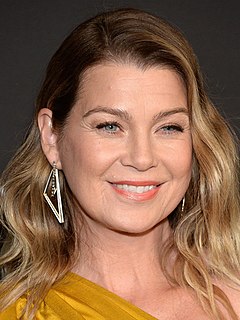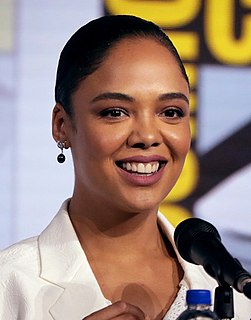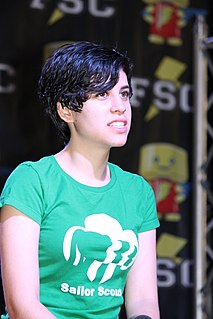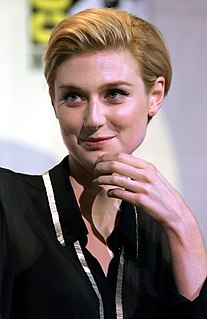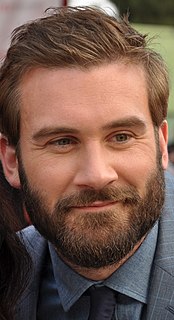A Quote by Esme Creed-Miles
I always found growing up that, even inspiring female characters or complex female characters in TV and film... I often found that their complexity was actually just another facet of their sexuality.
Related Quotes
I'm very conditioned by my surroundings, by the influences of social media, by the television I watch. And I always found, growing up, that even inspiring female characters or complex female characters in television and film, I often found that their complexity was actually just another facet of their sexuality.
I would say any film can be called feminist that has female characters who have agency in their life, that are in charge of their fate or do important things or take up half the space. I would consider a film feminist, I don't care what it's about, but if the cast was gender balanced, where it would be just as likely that the boss or the best friend or whoever was female. It's really as simple as showing women being in charge of their destiny and giving female characters a voice.
People often ask me if I feel discriminated against as a black female director. I don't. I'm actually offered a ton of stuff. But I only want to direct what I write. And I prefer to focus on black female characters. What's most important to me is to put characters up onscreen who are not perfect, but who are human and flawed.
I think the superhero platform gives the female character, you know, a relate-ability for the male audience as well. So, I think that's why people are kinda gravitating towards female super hero characters, and also female characters in general as big parts of the film. So, that's great for us, female actors who want to do roles like that, which is really great.
Women are always murdered and maimed, and they’re never given their rightful place as lead characters! And I think [creator Michael Hirst] has just written what should have been written a long time ago. There shouldn’t be anything that different about Vikings, but there is, because there’ve just been so many shows that have not stepped up to the plate and given female actors and female characters equal footing.
I think part of the pressure put on 'strong female characters' comes from the fact that there is so often 'the team girl,' who must be all things to all people. Part of avoiding that is having as many female characters as I can, and allowing them to thrive in their own right, not inside a framework they didn't ask for and don't want.
My whole theory about why I couldn’t find any creators who realized they were leaving out female characters is because they were raised on the same ratio. I just heard someone the other day call it either ‘smurfing’ a movie, which is when there’s one female character, or ‘minioning’ a movie, which is when there’s no female characters.

